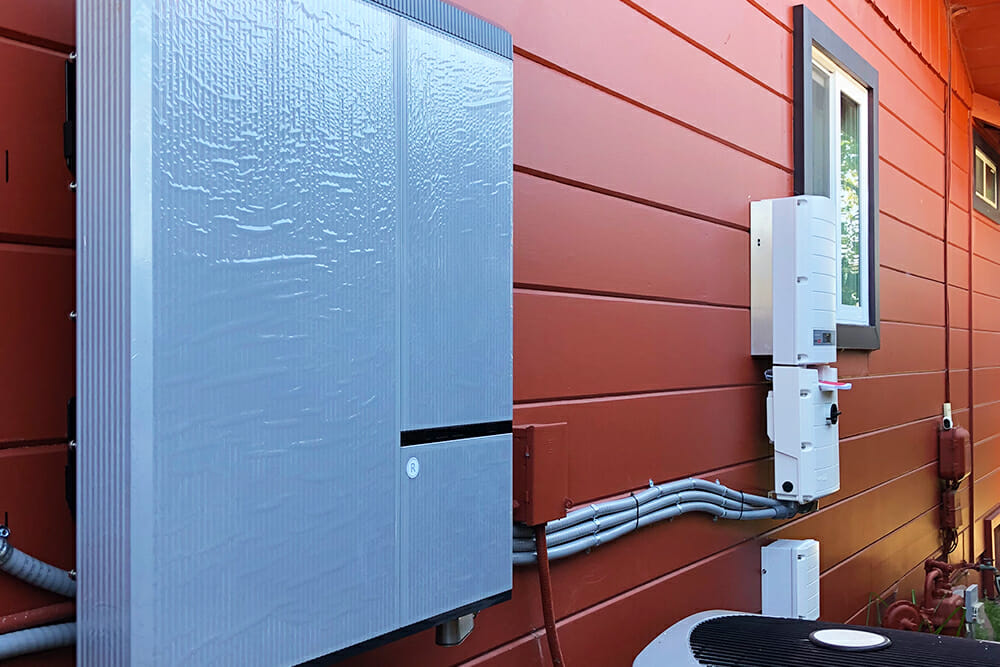Electric vehicles (EVs) are becoming increasingly prevalent on roads across America, with many mainstream automakers adding electric cars to their lineups. Just as residential and commercial solar power manufacturers are racing to develop the best tech at the lowest price, automakers are continuing to usher in ever improving EV technology.
Here are just a few of the auto manufacturers that now sell EVs:
General Motors (GM): In March, GM unveiled plans to introduce 11 new EVs to their lineup. Currently, the Chevrolet Bolt leads the automaker’s lineup, having enjoyed critical acclaim. The car won Motor Trend’s 2017 Car of the Year award, and AutoGuide.com’s 2017 Green Car of the Year award. Both the Buick Lyriq and the GMC Hummer EV are planned to go on sale sometime in 2021, which look to be standouts in GM’s future lineup. The automaker also just purchased an 11% stake in the EV startup Nikola, further signalling their race to produce more EVs.
Hyundai: Hyundai is in the process of expanding their EV line to 23 models by 2025, introducing hybrid and electric cars under the KIA, Hyundai, and Genesis badges. Hyundai currently offers two fully electric cars: the Ioniq sedan and the Kona SUV. Both are quite capable, as the Ioniq has a range of 170 miles and the Kona has a range of 258 miles on a single charge.
Volkswagen: Volkswagen expects to offer 50 EV models by 2025, and plans to sell 2 to 3 million electric cars per year by that time. The automaker is currently developing the I.D. series of cars, vans, and SUVs. I.D.s will be priced at less than $30,000 and offer a range of 206 miles on a single charge, with higher priced models reaching over 300 miles of range.
Honda: Honda is developing a new EV model available only in Europe, but currently sells the Honda Clarity Electric stateside. Nearly every standard Honda model also comes in a hybrid version, including the Honda Clarity Fuel Cell, Honda Insight, Honda Accord Hybrid, Honda CR-V Hybrid, and more. The car maker plans to unveil and sell additional EVs by 2025.
BMW: If you’re looking for something more sporty, check out the BMW i-series of EVs and hybrids. The i8, a hybrid vehicle, generates 369 horsepower. The i3, which is a slight step down in terms of sportiness, is also a hybrid. While the i3 is not as quick, it does have up to 153 miles of electric powered range. Similar to other major automakers, BMW is currently developing more electric cars and motorcycles, and the company is slated to have 25 electric models in their fleet by 2023.
Just about every major automaker is investing in fully electric platforms. It makes sense because the market for EVs is steadily growing. Case in point: over the past decade, Tesla has grown production 10-fold and is projected to continue growing at the same breakneck pace over the next decade.
Fueling up at the gas station is more expensive than charging your electric car—but that doesn’t mean electricity is free.
With an electric car, you’ll never have to make a trip to the gas station. You still have to “fuel” an EV, but that term means something completely different when talking about electric cars.
An EV’s version of miles per gallon (MPG) is kilowatt-hours per 100 miles (kWh). A car’s kWh will give you an idea of its efficiency. The more electricity a car uses to drive 100 miles, the less efficient it is. You may see promos for hybrid vehicles which cite figures for ‘MPGe’, which specifies how many miles a car can drive on a charge of 33.7 kWh, the energy equivalent to one gallon of gasoline. For example, the Tesla Model 3 gets 141 MPGe.
But how much does it cost to charge an electric car? You’ll need to consider two factors to calculate the cost of a full battery charge: how much electricity your car’s battery holds, and the price of electricity in your area.
Because there are many EVs, and because electricity costs vary throughout the country, it’s difficult to pin down a price that everyone should expect to pay to drive an electric car. As an example, let’s use the Hyundai Ioniq. The base-model Ioniq’s energy capacity is 28 kWh, and has a range of 170 miles on a single charge. If you drive 300 miles per week, you’ll have to fully charge the battery two times per week. This would require 56 kWh of electricity. Under PG&E’s time-of-use pricing, the cost for a full charge would be anywhere from $18 to $35.
At the lower end of the price range, the cost for a full charge is less than what you would pay at the gas pump. Still, it’s not like driving an electric car is free… but what if it could be free? Well, if you have a solar power system, you’re in luck: the cost to charge your EV can decrease to zero.
With a solar system at your home, you can effectively drive for free, while saving thousands of dollars on your energy bill.
A solar system can reduce your reliance on the energy grid, which saves you money when it comes to charging your electric car. But some planning ahead can certainly help when it comes to the size and power production of your solar system.
If you already have a solar system installed, but only recently purchased a plug-in car, then there is a chance your solar system won’t be able to adequately charge your car and power the rest of your home. Some new EV owners decide to bolster their solar system with new panels to meet their total energy demand, allowing them to pay zero dollars for a full charge. Even if you don’t upgrade your solar system, you’ll still likely shave a few bucks off the price you pay to charge your car, since you won’t have to fully rely on the grid.
If you don’t yet have a solar system and you either (1) already own an EV or (2) plan on buying an EV in the future, be sure to mention this to your solar installer. It’s best to have the necessary infrastructure to charge your car right away so that you don’t have to worry about installing it later.
Electric vehicles are the way of the future. They are both environmentally friendly and becoming more affordable for the typical consumer. You can really save on car costs if you charge your EV with solar power, which can potentially lower your cost to charge to $0.
If you are interested in a solar system that can power your home and/or EV, contact Ilum Solar! Our solar engineers are ready to discuss the best system for your home. Reach out today.




